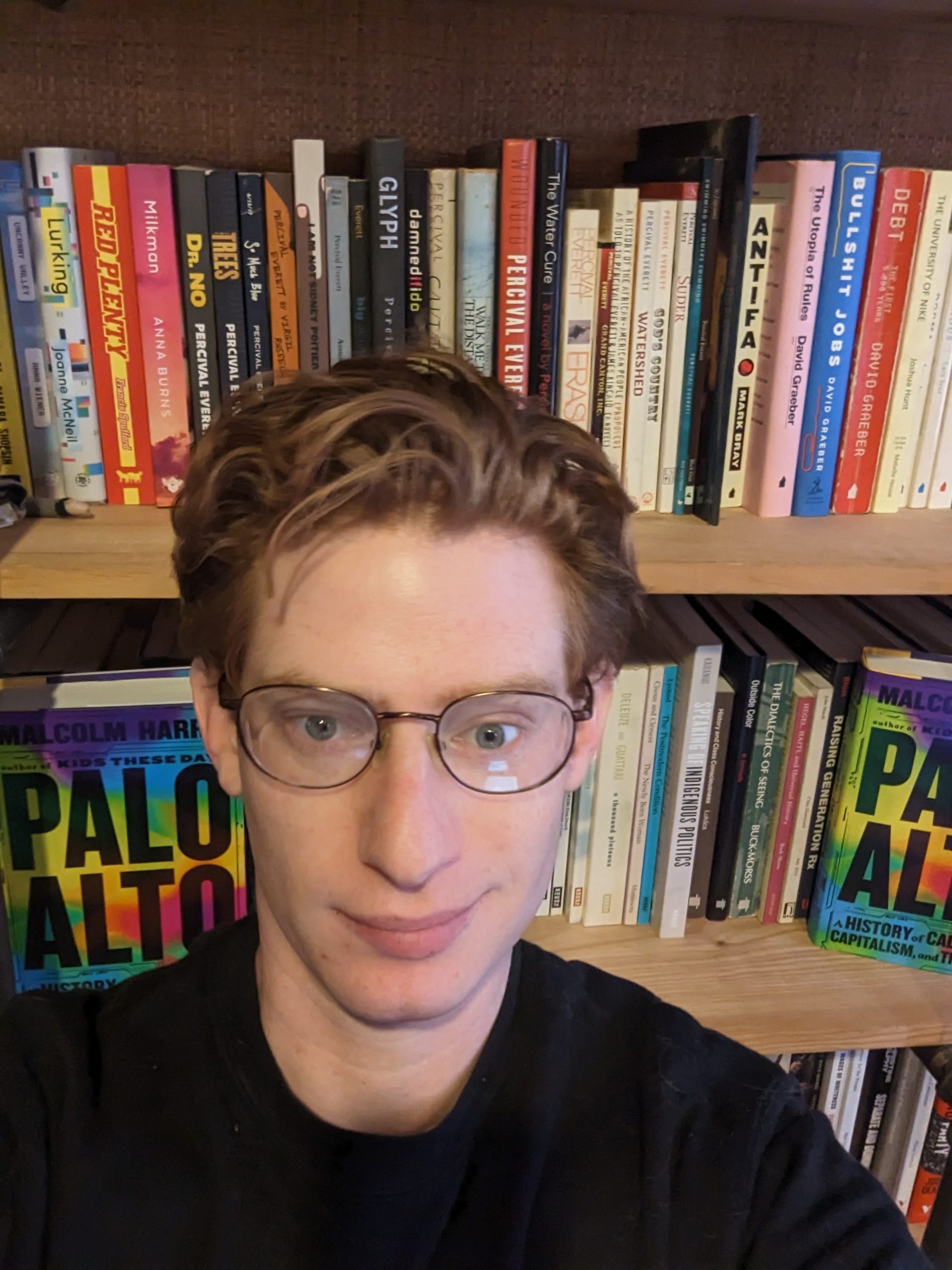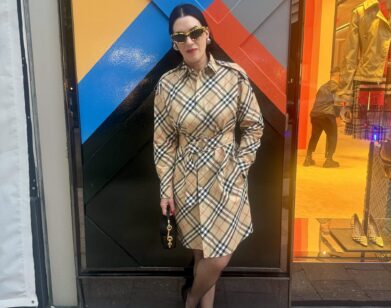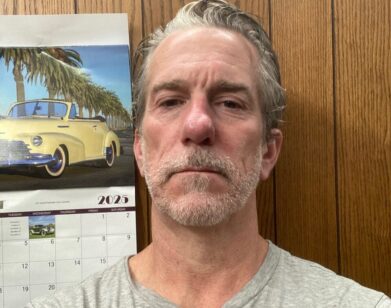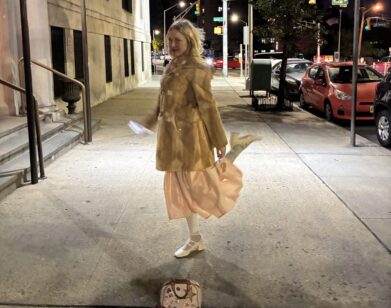IN CONVERSATION
Malcolm Harris on Palo Alto, Political Awakenings, and Being Replaced by Robots
A phrase has been stuck in my head since I finished Malcolm Harris’ epic Palo Alto: A History of California, Capitalism and The World: “Only by understanding how we are made use of can we start to distinguish ourselves from our situations.” Today, we are familiar with arguments about how we’re all being used and manipulated by technologies invented in Silicon Valley over the last 20 years. Yet Palo Alto shows that the region has been at the center of making use of people for profit in novel ways for much longer. In Harris’ telling, white supremacy, scientific management techniques and Eastern capital came together in the verdant Santa Clara valley over the course of the 20th century to create what he calls the “Palo Alto System”: a machine that makes and exploits human capital as efficiently as possible.
I met Malcolm Harris in 2011, when Occupy Wall Street first cracked open the question of capitalism for me and many others who came of age at the End of History. Malcolm’s first book, Kids These Days, helped me understand my own disappointments and anxieties about the world as related to the historical development of a capitalist system that demands more and more from young people while giving them less. Palo Alto should be crystalizing in a similar way, not only for a generation of Americans, but for any citizen of the world who wishes to understand their situation in order to change it. Last week, Harris and I got on Zoom to talk about his political education, the latest artificial intelligence freakout, and his doorstop of a book.—ADRIAN CHEN
———
MALCOLM HARRIS: What’s up, dude!
ADRIAN CHEN: How’s it going?
HARRIS: Good. How are you doing?
CHEN: I’m doing well. I’m just figuring out Zoom, sorry. I’m one of the people who use Zoom the least of anybody on earth, so every time I have to remember how to do it.
HARRIS: I’m the same way.
CHEN: I’m excited to do this. That’s why I’m overcoming the technical difficulties. I think we should start with your childhood, because that’s where you start in the book. Both of your books have been about childhood and education, in a way. You include this moment in your book where the substitute teacher comes in and tells you that you’re in a bubble, and how that was one of your first experiences recognizing that where you were growing up was different. What would be one example of something where you look back and you’re like, “Oh, this was the Palo Alto system impinging on my life in a particular way?”
HARRIS: I had moved there two years earlier, I hadn’t grown up my whole infancy in Palo Alto. This was still a new place to me. But at that point, it seemed very normal in a really nice way. Instead of the duplex where I’d lived, or the apartment buildings, on the East Coast, there were all these nice single-family homes and people drove their cars to work. It was very “Boy Meets World” era, suburban California feeling, hyper-normal. It was like, “Oh, I finally moved to the normal world that I see on TV,” or whatever. And then this substitute teaching coming in and being like, “Listen kids, you live in Stepford world,” and then having her be sort of disappeared by the school, definitely lodged in my head something about this place I was growing up in.
CHEN: I grew up in Vermont on the East Coast, and had this image of California as more of a dystopia, I would say. Because we just saw it all as sort of overdeveloped and homogeneous. In Vermont, you had this illusion of rural freedom. Whereas, in the book, you get into the competitiveness [of Palo Alto], and how life had been shaped according to these purposes.
HARRIS: Even though it was the center for the tech world, when I was growing up, California didn’t seem like that important of a place in terms of the world. I wanted to get to D.C. where politics was happening. And it felt like California politics, you were just dealing with centrist Republicans and centrist liberals, and you couldn’t really get anywhere with any of them. And there wasn’t any conflict. I had to go somewhere else, where something was really happening. And as soon as I got to University of Maryland, where I was going to school, trying to get close to D.C., these tuition protests kick off at the UCs. And all my friends up in California are at the front lines of the most important political struggle in the country, as I saw it at the time. I was like, “Oh, fuck. I went to the wrong place. I should have just stayed in California. I should have just gone to Santa Cruz. What the fuck am I doing? Why am I in DC? All of my friends are getting pepper sprayed in California.”
CHEN: So you went to D.C. because you were interested in politics. How did you get interested in politics at such a young age, anyway? I don’t know if it’s a micro-generational difference or geographical, but politics was just such a non-part of my life growing up. The things we cared about were snowboarding and what was on MTV.
HARRIS: It always seemed to be the thing to be interested in. It was the world. So that started for me with protesting the invasion of Afghanistan after 9/11. I was, I guess, 12 or 13. I experienced my youth as just full of politics. But at first it seemed very low stakes. It’s crazy how low stakes the 2000 election felt. And even Rage Against the Machine, everyone was like, “Yeah, Bush, Gore, who cares? Doesn’t matter.” And that was the way it felt.
CHEN: You’re a very forthright Marxist, and this book is clearly informed by your reading of Marx. How did you first encounter his work?
HARRIS: Well, I definitely wasn’t a Marxist [at first]. I was heavily political as a middle schooler and high schooler, but I was definitely a left liberal. I was like a Democratic Socialist. Democratic Socialists weren’t really a thing at the time or whatever, but I was as far left a liberal as existed at the time. So I was a big supporter of Russ Feingold and Paul Wellstone, before Bernie Sanders stood for what Bernie Sanders stands for now, when he was a crank or whatever. And I was like, “This is what I wanted to do with my life,” be a left-wing Democrat, move to DC, do the “West Wing” thing.
CHEN: I met Bernie when I was in middle school, actually. He was just around.
HARRIS: The local guy, yeah. Part of that idea, for me, was opposing the wars. The wars were wrong. I understood wars to be wrong in general, not as a pacifist but as an anti-imperialist. And the liberals were not protesting the war. When you go out and you want to demonstrate against the war, especially as a young person, it was the radicals in the street. It was the anarchists who were organizing protests. And so that’s who I ended up organizing with. And then the financial crisis happened, and I had a moment where I sort of understood that I didn’t want this system to recover. I wanted the system to be done, so that we could figure out some other way to relate to each other. My first real research project was to connect the financial crisis as it was happening to our campaign on campus against tuition increases. And that involved researching the student debt and the financialization of student debt, which ended up looking very similar to the housing crisis in some ways. And then that ended up being my first big public essay.
CHEN: I think that was the first thing that I had read of yours in n+1, about student debt.
HARRIS: It’s crazy to think about how student debt was considered in 2010, 2011, which was, “Take on as much student debt as you possibly can, because education is the best investment you can make.” And so the bigger investment you make in your education, the better the outcome will be. And student debt was understood very unequivocally as a positive vehicle for people to enhance their earning power. And what I was arguing is, “This is a problem.” If you think about educated labor as a supply and demand question, the more educated labor you provide, the price is going to go down, not up. And they’re not going to be able to pay back all these loans that are premised on the unending, increasing rewards for labor, for education. And this was an unconventional argument that surprised people at the time.
CHEN: Right. It sort of shows the power of that idea of human capital that you go into in your first book. “Oh, if you just invest in yourself, if we invest in people and you work hard, you’ll be able to succeed.” But you showed how the underlying material reality of that is in direct conflict with the idea of common flourishing on the back of increasing education for everybody.
HARRIS: Yeah. It’s a class system, man.
CHEN: I feel like we should also talk about how we met, because I think I met you right around then.
HARRIS: You were working for a noted gossip publication called Gawker. I was working for a left-wing magazine called The New Inquiry. This was the early days of Occupy Wall Street, which I’d been part of since the first general assembly on August 2nd before the occupation of Wall Street. And there were many meetings going on between people who were trying to further the Occupy Wall Street project. The biggest band in the world at the time was Radiohead. And they were playing a few gigs in New York, at whatever ballroom. And someone said, “It’d be great if we had a Radiohead concert. Then everyone would show up.” And then someone said, “Well, it’d be great if people thought there was a Radiohead concert, then everyone would show up.” So I included a line about that in my blog for a new left-wing magazine [Jacobin] that was just starting, where I was one of the staff bloggers.
CHEN: With extremely stringent editorial controls, right?
HARRIS: Yeah, very strong editorial control. At the time, it was a big tent political magazine. And I published a story about Occupy Wall Street where I included some offhand comment about like, “Oh, there’s been some rumor that Radiohead’s going to show up.” And some people read that piece. One of those people was you. And then you printed that as a rumor.
CHEN: Yeah, that’s basically what happened. I mean, I would sum it up more as you lied to me about Radiohead performing at Occupy Wall Street, and then we became friends. But I followed up with the entertainment committee, which had received an email from somebody who supposedly was Radiohead’s manager, and they also believed that Radiohead was going to play. And when I called them up, they were like, “Oh yeah, we got an email from their manager.” I don’t know who sent that email pretending to be the manager.
HARRIS: That was me.
CHEN: The real Radiohead concert was the friends that we made along the way.
HARRIS: People gave us a lot of credit for the effects of that rumor, in terms of how many people actually showed up. But ask anybody, no one will ever admit that they showed up for the concert.
CHEN: Let’s talk a little more about the book. I hear from authors that pub week is an intense experience.
HARRIS: Yeah, it was a little crazy. I did it mostly in NorCal, which was fun. It’s like a hometown audience, as well as an audience to whom the book is particularly relevant. So I did the first book talk at the bookstore that’s across the street from my high school, so that was a little crazy. The New York Times review, I don’t know if you read that one, was a little out there. They ended up having to issue some correction about their misreading of my book.
CHEN: I did read that. What was the correction?
HARRIS: The correction was that Japanese internment did in fact happen. They were confused about that one.
CHEN: I thought that was a very strange turn in that review where he was like, “Well, yes, but what about the part where it wasn’t as bad?” As if that was some huge “gotcha” that actually was getting to the heart of your argument. You tweeted that it was sort of a serious sign of the limits of mainstream discourse. And I’m curious, do you think that review will have a big negative impact on your sales?
HARRIS: I hope not. I mean, it’s hard to parse exactly how all these things work. And I’m sure there are plenty of leftist writers out there being like, “Yeah, shut the fuck up, you published in fucking trade press.” But I don’t have a graduate degree, this is my fucking job. I got to publish these books, it’s my living. So yeah, you do take it as a threat against your livelihood. And if you go on Amazon now, there are a bunch of one star reviews on my book from people who are like, “fucking commie,” basically. And so it spurs anti-communists into action against you, in a way that has nothing to do with the content of your book. I try not to get into the conspiratorial mindset, because I watch what that does to people on Twitter when they think, “Oh, I’m being silenced by the system.” It drives you nuts. So I’ve chosen not to assume that there are people saying bad things about me that are sabotaging my career. But even in this case, I choose not to be like, “Oh, is this because I panned John Markoff’s book in The Nation? And he’s a longtime New York Times contributor with deep roots in the Bay tech community.” I don’t think that sort of thinking leads to better writing or better work.
CHEN: Something that I have realized, reading a lot more history, is just how important anti-communism was as a sort of cultural force that oriented so many things that we are told from a more positive version of American exceptionalism or whatever. But people have been and were terrified of communists. And that explains a lot of the 20th century that you get into in your book. One of the unique things about the book that that review did not get at at all is the global scope of it, the way that you tell the rise of Silicon Valley as a story of decolonization and America’s response to that, and the Palo Alto system being the engine And epitome of America’s attempt to basically control the world in this time period. Was that always the gist of it?
HARRIS: No, it definitely developed that international framing as I was working through the history. Because as I learned more about the history of California and its place, especially through the role of California engineers in the colonized world, it became clear to me what kind of colony and what kind of place California was in the 19th century. During this period, for the United States of America, California is for most intents and purposes an overseas colony. It has more in common with some place like Algeria than it does with the East Coast of the United States, in terms of this historical development. And once I saw that, I sort of couldn’t unsee it. If you see California as more like Algeria or more like South Africa than the East Coast of the United States, then it becomes part of this anti-colonial colonial story. And then parts of the 20th century make a lot more sense. Why does this anti-colonial movement emerge in California, of all places? And that definitely shaped and changed the kind of book I was writing. It’s not just “Palo Alto, a history of California and capitalism,” but really California, capitalism, and the world. Because the world, as we understand it, becomes the world at the same time as California becomes California. And at the same time, capitalism becomes capitalism.
CHEN: This is summed up very well in your chapter on Apple, where you made the point that one of their initial big contracts with Xerox was because Apple could make computers without union labor, based on immigrant workers that were themselves a product of the sort of upheavals and displacement caused by US anti-communist struggle, which was itself sort of enabled by the technology that Silicon Valley created. So you get this image of an ever-tightening circuit of repression, displacement, profit. You must have read so many books for this. How many books did you read, do you think?
HARRIS: I’ve been reading books for this book for as long as I’ve been reading books, it turns out.
CHEN: Of course.
HARRIS: And it’s interesting, thinking back to, “Well, where did I start reading books?” I started reading books out of the secondhand stores of Palo Alto, where these new left people put them for me to find, ultimately. So even the books I was reading to first learn critical thought were the jetsam of these past struggles, even if I didn’t understand them as that.
CHEN: If there was one book that you would recommend people read out of your research, what would it be? I’m asking for myself, mainly.
HARRIS: It depends what they’re looking for. I think that Paul Baran’s Political Economy of Growth is one that’s hugely underrated and does a good job describing a lot of the mechanisms of the capitalism that we’re living in now. And he really does it, I think, the right way, where he’s looking at, for examples, “Why are TV shows so fucking stupid?” Well, let me tell you about the struggle for growth in the economy.
CHEN: Yeah, and that’s sort of the lens you’re applying to Silicon Valley, which has been subjected to its own sort of cultural critique pretty intensely for the last, I don’t know, five to 10 years. If I would sum it up, it’s sort of, “Tech bros are these libertarians, these irresponsible boy princes who wrecked the economy and wrecked politics by just this sort of hubristic obsession with technology as a sort of transcendence.” And I think there is still some validity to that. But you sort of add another very important angle and context, which is the capitalist search for growth, the capitalist search for profit, and the relation between that and imperialism and anti-communism, and the creation of the entire world system that we live under now. I don’t know if you feel like this, but I do get the sense that the criticism of Silicon Valley, even in the last couple years, has actually developed in an interesting way, where we’re not really talking about in this sort of deterministic, “Oh, platforms destroyed everything” way, but bringing in this larger political-economic context. And seeing that technology is not just something that happens; it’s ideology and power concentrated into material form. But then something like ChatGPT comes along, and I feel like that all went out the window. People are like, “Robots are taking our jobs.” It’s like, no, the problem is they’re being designed to take our jobs.
HARRIS: It’s a good example of how Silicon Valley’s constantly waking up and realizing, “Oh, that was all a dream. That was a big mistake. Fyre Fest, whoops. Things got out of control and that was too much hype.” And then they have to forget about that and start over again, constantly. It was very funny watching the transition from crypto to AI, where the hype-cycle gap was so small that you could watch them repeating the same lines. The same people who were Web3 experts two weeks ago are AI experts now. What’s the third time after a farce? You just do another farce: farce, farce, then super-farce. But in terms of actual economic value, I don’t think there’s necessarily a big difference between this stuff and crypto. I fundamentally just don’t think it’s real.
CHEN: AI?
HARRIS: Yeah. Real, insofar as it’s not actually useful for any real practical economic purpose.
CHEN: Well, I don’t know if I agree with that. I think that if somebody wanted to make it useful, they could.
HARRIS: For what?
CHEN: I mean, it’s sort of applying that same deskilling logic that people apply to any kind of manufacturing to content. My sister works in nonprofits and communication, and she’s like, “I could totally see this sort of automating me out of a job.”
HARRIS: I mean, maybe their goal is to make unemployed the people who write emails. Maybe that’s like, “This is revenge on the wordcels,” or whatever. It’s that [Isaac] Asimov story where they just get calculators for everything and then they’re like, “Holy shit, you can add numbers in your head? That’s the craziest thing in the world. You’re a genius.” I’ve talked to writers who feel that way. Like, “Yeah, use the fucking ChatGPT all day long, and then when you actually see what a sentence written by a skilled writer looks like, you’re going to have your jaw dropped and you’re going to pay me $100 an hour just to be able to write a competent sentence. And you’re going to look like a genius, and they’re going to reinvent writing all over again.”
CHEN: I’ve been sort of checked out of the whole AI thing, I just get too worked up about all this stuff. And I have to write my own book. [Chen’s Among the Trolls is forthcoming from Random House].
HARRIS: How’s the book going?
CHEN: It’s going. I don’t know if this is the case with you, but it took me six months just to write the first 5,000 words. I wrote it over and over again. I guess I’m learning that’s my process when it comes to a book. And then finally one day I was like, “Oh, this is it.” So take that, A.I..
HARRIS: You need Nick Denton [founder of Gawker Media] looking over your shoulder with your employment letter?
CHEN: I feel like my entire career since working at Gawker has been trying to unlearn that, trying to kill the Nick Denton in my head. Like, “Okay, every single word does not have to be used and published to an audience.” That’s the ethos of online media, as you’re probably aware. So yeah, it’s been an interesting but very challenging experience to do that and to have the space, which is both a blessing and a curse.
HARRIS: When’s it due?
CHEN: Ugh, please. No comment.
HARRIS: You’re like, “Many years ago.”
CHEN: Let’s catch up not on the record sometime.
HARRIS: Yes, I’ll be in touch, because I’ll be in LA eventually.
CHEN: Okay, see you, man! Bye.







